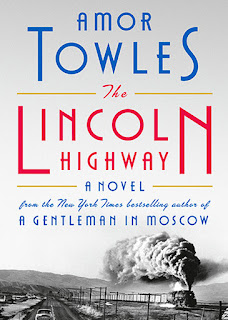After teaching composition to first-year college students for five or six years, I had the opportunity to teach World Lit I this semester. Even though British Lit has always been my comfort zone, I jumped at the chance for some variety. Following the lead of my colleague who usually teaches the class (when he's not in London for the Study Abroad program), I focused on epic poetry, starting with Gilgamesh, which I paired with Robert Alter's translation of the book of Genesis from the Pentateuch. Then we read the Iliad and the Aeneid, immersing ourselves in the opposing sides and the aftermath of the Trojan War. We finished with Dante's Inferno (always making me think of a fellow in North Carolina who referenced the work: "...Dante's Inferno. Now who wrote that?" Obvious answer: Dante).
What I found, as did so many of my students, was that once you are tuned in to a classic work, you find allusions everywhere. Hardly a day goes by that the crossword puzzle doesn't have a clue related to Homer or the pantheon of Greek or Roman gods. Recently, I started reading the latest novel by Amor Towles, The Lincoln Highway. I loved Rules of Civility, and maybe even more A Gentleman in Moscow. This book holds up to Towles' standards without resembling either book in the slightest.
Set in the 1950s, the novel follows Emmett Watson, a Nebraska boy, newly released from juvenile detention upon the death of his father. He and his younger brother Billy, upon learning their father left them over their heads in debt, decide to take the Lincoln Highway to California to start a new life. Billy dreams of finding the mother who left them a few years before, while Emmett plans to use the construction skills he learned before his life took a rough turn, to buy and repair dilapidated houses, selling them and starting again.
Their plans are interrupted by the arrival of two of his former juvenile inmates, Duchess and Woolly, who slipped out in the trunk of the car dropping Emmett at home. They are determined to take a detour in the opposite direction to collect Woolly's inheritance.
Billy's brother, a precocious boy and an avid reader, reads and rereads Professor Abacus Abernathy's Compendium of Heroes, Adventures, and Other Intrepid Travelers, providing inspiration and parallels to their journey. The young boy called Duchess has grown up with a father who was part vaudeville part Shakespearean actor, much of which has rubbed off on the charming trickster. Even their encounter with a railroad hobo named Ulysses didn't challenge the readers suspension of disbelief.
With Song of Achilles next on my reading stack, I look forward to another perspective on these old stories into which authors continue to breathe new life.







No comments:
Post a Comment